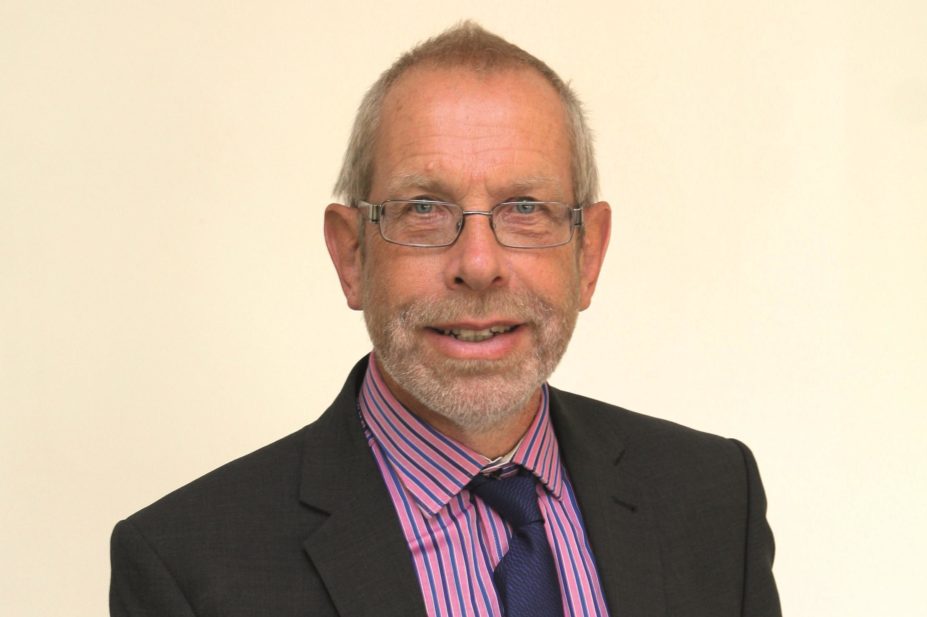
Royal Pharmaceutical Society
The chair of the Royal Pharmaceutical Society’s (RPS) board in England who lost the seat he has held since 2010 after polling just 16 votes fewer than the winning candidate says it has been a “fantastic honour” to serve members.
David Branford, English Pharmacy Board (EPB) chairman since 2013, had contested an “any sector” position in the 2015 board elections and won 964 votes, but came second in the category to Claire Anderson, who received 980 votes. Total turnout was 2,643, or 11.7% of members in England.
Fellow board member Elizabeth Butterfield, a primary care representative since 2012, also lost her seat. The two other positions being contested went to RPS treasurer Sultan Dajani as a community practice representative and Catherine Armstrong for the primary care sector. Aam
er Safdar was elected unopposed as a hospital pharmacy representative. The industrial sector position will be a cas
ual vacancy as no one was nominated for this position.
Branford told The Pharmaceutical Journal he would have liked to continue on the board, but nevertheless it had been a great experience to serve. “We [the Society] have made massive strides forward [since 2010]. The impact of the ‘Now or Never’ report was enormous, it gave us the confidence to put our case forward, and I think the impact of that has been huge.”
He said the EPB’s recent campaigns for more pharmacist involvement in urgent and emergency care and in general practice had a big effect on the wider perception of pharmacy. He says the next three campaigns in the pipeline — on care homes, access to records and long-term conditions — can have a similar impact. “Hopefully the progress we’ve made will be continued with the new board,” he says.
“It’s been a fantastic honour and a tremendous experience being chair, and I wish everyone great success for the future,” he adds.
‘Re-engage with members’
Dajani thanked members for their vote of confidence, saying it was an “honour and a thrill to know members have put thei
r trust in me”. He says his priorities on the board for the coming year include calling for a review of RPS efficiency and governance five years after the demerger from GPhC. “It’s time to take stock. No matter how beautiful the strategy, it’s time to look at the results.”
He also calls for more empowerment of employees by boosting their professional rights, growth in the influence of contractors, and a reduction in bureacracy.
Armstrong, lead pharmacist at medicines optimisation organisation Pharmicus in North East England, says the faith shown by her colleagues is “quite humbling” and that she will work hard to justify their faith
. “
I want to help the Society re-engage with the members and put the profession at the forefront of healthcare delivery in the UK. We need to encourage professional development through engagement with the Faculty but also to keep up the pressure to deliver on the decriminalisation issue, which blights the daily working life of most of our members.”
Anderson, professor of social pharmacy at the University of Nottingham, says she is delighted to be re-elected and will “continue to work for all pharmacists”. She says recognition of pharmacy has grown in the NHS, the media and among other professional bodies, but that the EPB must build on this to further support pharmacists. She added that the next three years will be “crucial” for pharmacy education as the move towards a five-year integrated MPharm degree continues.
As a new board member, Safdar says he hopes to bring a different perspective based on his experiences in practice and academia. “The priority is to engage with members and non-members to ensure that the RPS supports what pharmacists need now and in the future for the best patient care. This can only happen if we see ourselves as a united profession.”
Voter turnout this year increased by 2.38 percentage points on last year’s elections when 2,073 members in England (9.3%) vote
d.
The elected board members will assume their roles on 24 June 2015 at the next EPB meeting, and will serve a three-year term. At the meeting, board members will also elect a chair, vice chair and five assembly members, as happens each year.
There were no elections in Scotland and Wales this year because the number of nominated candidates matched the available positions on the boards. In Scotland, Elaine Thomson was elected to the board unopposed and current members Anne Boyter, John Cromarty and David Thomson were re-elected unopposed. In Wales, Cheryl Way joined the board and chair Mair Davies was re-elected unopposed.
Elected members of the Scottish and Welsh Pharmacy Boards will take office on 16 June 2015 and 22 June 2015, respectively.
- This story was updated on 2 June 2015 to include a quote from Aamer Safdar.

